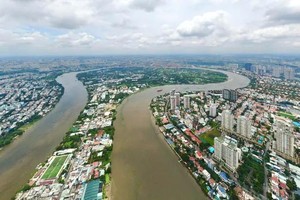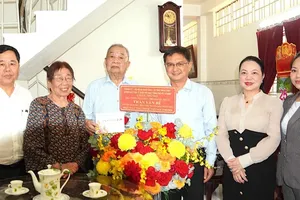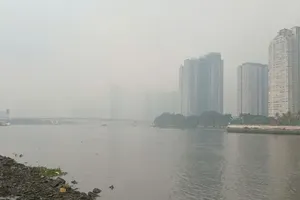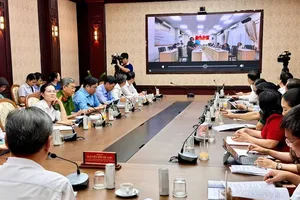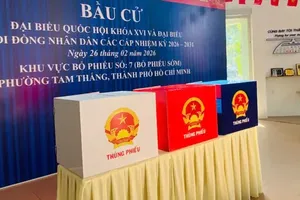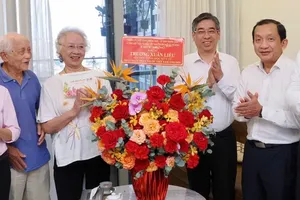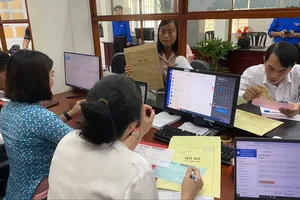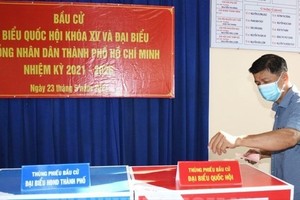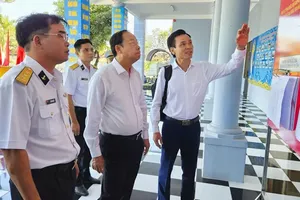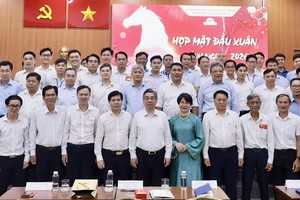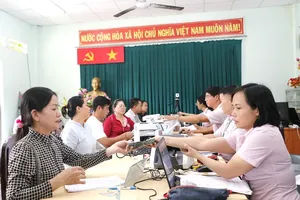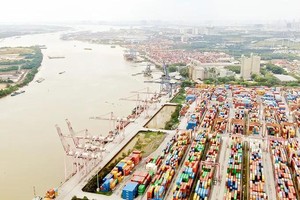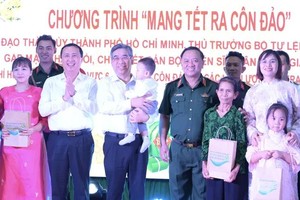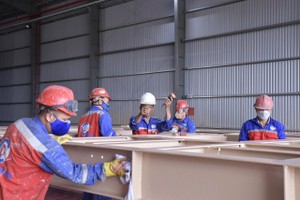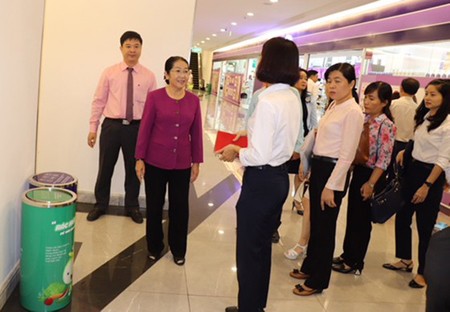
Commenting on the status of one year implementing Instruction No.19-CT/TU by the Standing Committee of the HCMC Party Committee about ‘Encouraging Citizens in HCMC not to Dispose Garbage onto Streets and Canals for a Cleaner City’, Deputy Secretary Vo Thi Dung said that there has been a close collaboration among state units and public organizations in carrying out this policy, leading to the launch of various campaigns and programs citywide and an effective awareness raise among citizens in the city regarding environment protection. As a result, 517 out of 600 waste hotspots in HCMC haven been basically handled, some of which are now public parks to serve the community.
However, she indicated that the illegal waste disposal onto channels around the city does not improved as wished, despite a breakthrough program launched by the HCMC Party Committee right at the beginning of its current term and Instruction No.19-CT/TU after that.
Deputy Secretary Dung attributed this negative to the lack of determination synchronization of the municipal authorities in the past, creating a quite limited result.
Therefore, the Standing Committee of the HCMC Party Committee introduced the above instruction for a more focus of the whole community on cleaning the city, eliminating the negative habit of littering, and improving the management capability of local state leaders in applying solutions to urban problems.
The Deputy Secretary stated that after a year carrying out this instruction, there are certain impressive results, yet these do not meet the expectation due to a limit in synchronous and frequent cooperation among different subjects and a too loose punishment mechanism. Another problem arisen is the confusion of residents in dealing with bulky garbage since waste collectors are not normally responsible for it. Adding to that is a number of citizens who still hold a low awareness about maintaining sanitation in their neighborhood and protecting the environment when they often throw garbage onto channels.
She then reported the heavy workload of sanitation workers in HCMC, saying that they have to handle more than 30 tonnes of waste per day in the five main channel systems of the city, the vast majority of which is household one. This means a waste of VND25 billion (US$1.07 million) annually from tax.
When discussing possible examination methods to ensure that environment protection actions lately are not merely short-term ones, Deputy Secretary Dung insisted that there must be a two-way written commitment from both the public to state units, lower levels to higher ones, to not littering on streets and channels (with a target of 90 percent to 100 percent signing this commitment).
Talking about the solution to tackle temporary coping of certain local areas to the city cleaning campaign, Ms. Dung cited the direction of the Standing Committee of the HCMC Party Committee about the important role local state leaders in implementing Instruction 19-CT/TU. Accordingly, in the evaluation report for each Party member this year, there must be a criterion on his or her part in carrying out this Instruction as well as other key policies of the city’s Party Committee.
